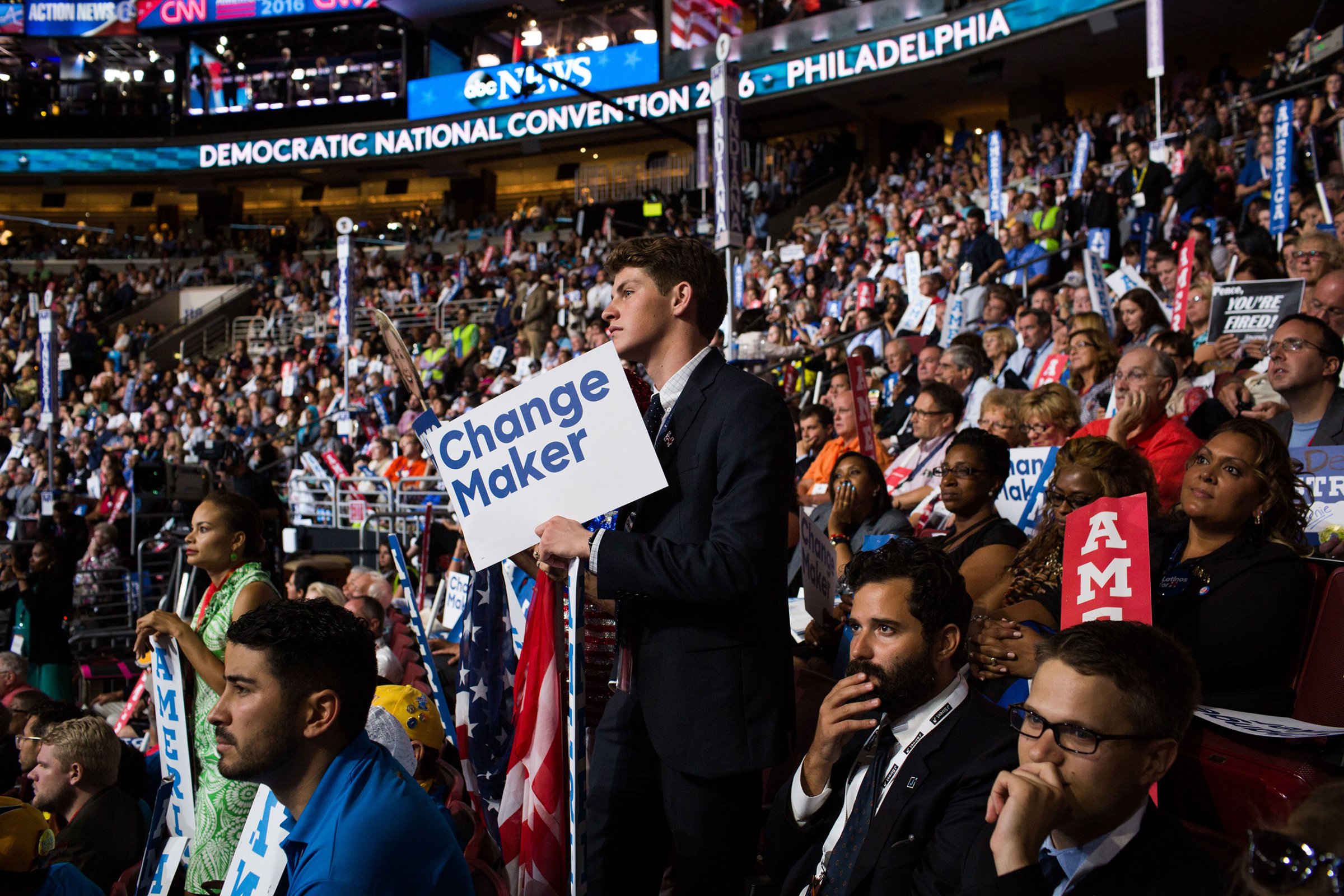
Gianni Pittella, a longtime Italian member of the European Parliament, hit the campaign trail this week. Sitting at the back of the Gran Caffe L’Aquila, he warned a group of local businesspeople and supporters of the evils of fascism. Except Pittella wasn’t touring Italy. He was sitting in Philadelphia, trying to convince American voters to oppose an American candidate: Donald Trump.
“I have taken the unprecedented step of endorsing and campaigning for Hillary Clinton because the risk of Donald Trump is too high,” Pittella told TIME. “I believe it is in the interest of the European Union and Italy to have Hillary Clinton in office. A Trump victory could be a disaster for the relationship between the U.S.A. and Italy.”
Pittella isn’t the only European to either outright or shadow endorse Clinton. Traditionally, European leaders attend both conventions. But only a handful of European diplomats announced they would attend Trump’s Republican National Convention in Cleveland last week, most notably UKIP leader Nigel Farage, the man behind the “Brexit,” and far-right Dutch leader Geert Wilders. Pittella said dozens of European diplomats from across Europe’s political spectrum showed up in Philadelphia this week.
Across the Atlantic, French President Francois Holland openly endorsed Clinton at the end of June. German Chancellor Angela Merkel has praised Clinton’s “deep political experience, her commitment to women’s rights, to family and health care.” European Commission President Jean-Claude Juncker, who belongs to the conservative Christian Social People’s Party, last week not-so-subtly said he’s supporting “a female candidate” for president of the United States. And a March YouGov poll of Europeans found that Clinton would win the European vote overwhelmingly with 46 percent to Trump’s 6 percent.
“This campaign is special,” Pittella said. “This campaign is not between Democrat or Republican. It’s between democracy and no democracy in the U.S. It’s between having a relationship between the U.S. and the E.U. and the U.S. and other countries, or not. And Italian citizens, together with the world, have the duty not only to intervene, but to act, to support Hillary’s campaign.”
Pittella was having dinner with a group of Pennsylvania business men and women involved with an Italian-American exchange group called Fillitalia International and Foundation. Fillitalia has 12 chapters in the U.S. and 11 in Italy, and Pittella wanted to convince the assembled crowd to support Clinton as a way of helping their familial homeland of Italy. The message fell mostly on friendly ears.
Businessman Daniele Marconcini promptly dubbed Trump the “Siberian candidate.” “He’s Putin’s take on the Manchurian candidate,” Marconcini explained.
The Italian American vote is usually fairly evenly divided between Republicans and Democrats, said Joseph Rollo, a Philadelphia attorney. Some he knows are supporting Trump, though he’s working hard to convince them otherwise. “Sometimes, ironically, victims of prejudice, they become prejudiced themselves,” Rollo said.
Sitting at the end of the table was Rosetta Miriello, 55, president of Fillitalia. She manages a cardiology practice in Philadelphia and started the week leaning toward Trump. But the constant talk amongst the group against Trump, and watching President Obama’s speech at the convention Wednesday night now has her leaning toward Clinton. “Clinton, of course, would be better for Italy,” she said, gesturing toward Pittella. “But I’m more concerned about what the next president would do for us, for our young people here, for the country that we live in.”
Rollo shook his head. “I don’t understand the people who support Trump,” he said. “He’s anti-woman, anti-Muslim, anti-Latino. He’s creating a philosophy of hate. He almost sounds like the Nazis.”
Pittella agreed. He’s had some experience with a leader who presented himself as the savior of the country. “In the past [Italian dictator Benito] Mussolini said the same thing, taking advantage from the crisis at that time that Italy was living. The damages made by Mussolini were solved by America,” he said. “Who would solve Trump’s damages?”
More Must-Reads from TIME
- Cybersecurity Experts Are Sounding the Alarm on DOGE
- Meet the 2025 Women of the Year
- The Harsh Truth About Disability Inclusion
- Why Do More Young Adults Have Cancer?
- Colman Domingo Leads With Radical Love
- How to Get Better at Doing Things Alone
- Michelle Zauner Stares Down the Darkness
Contact us at letters@time.com